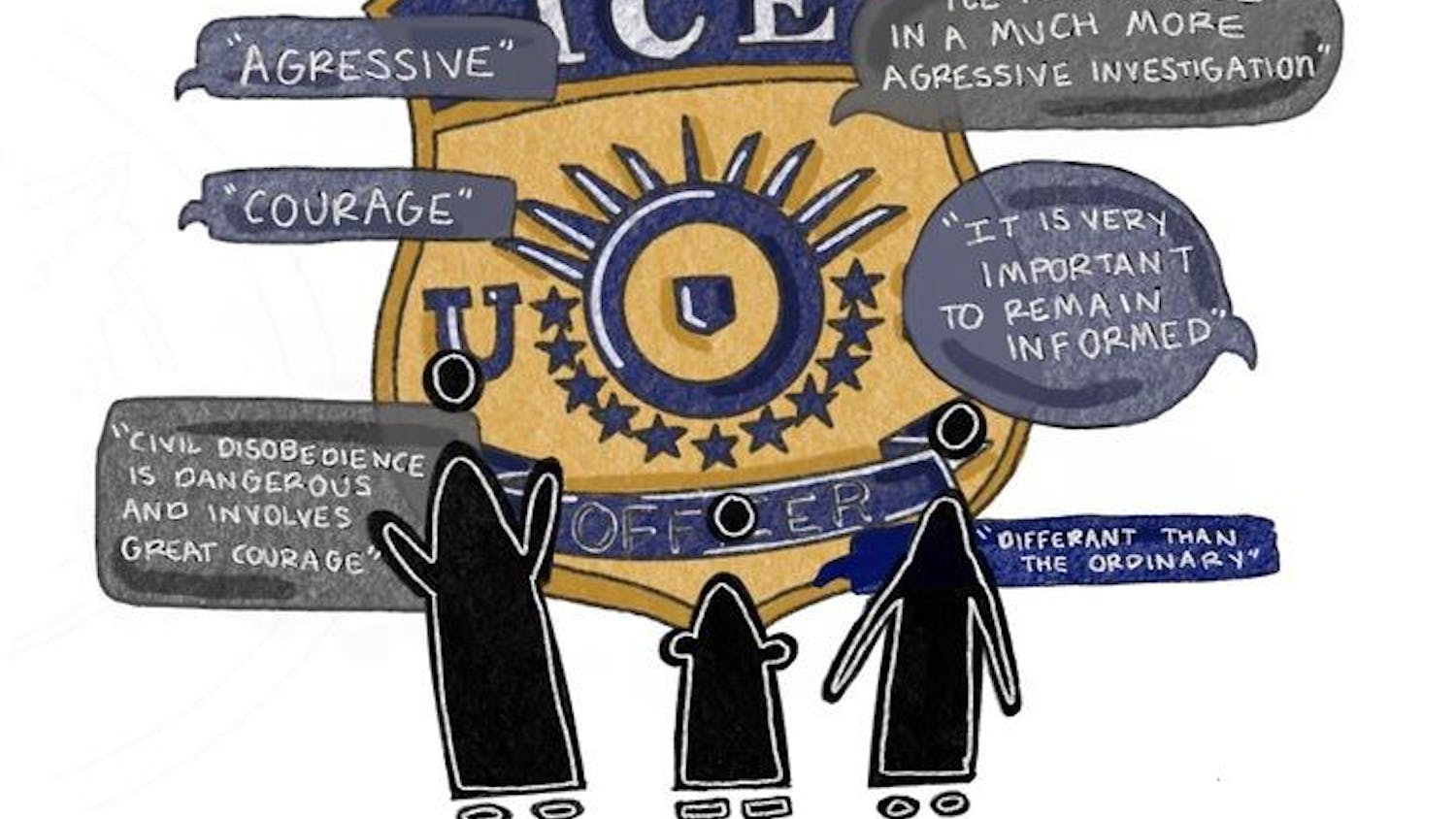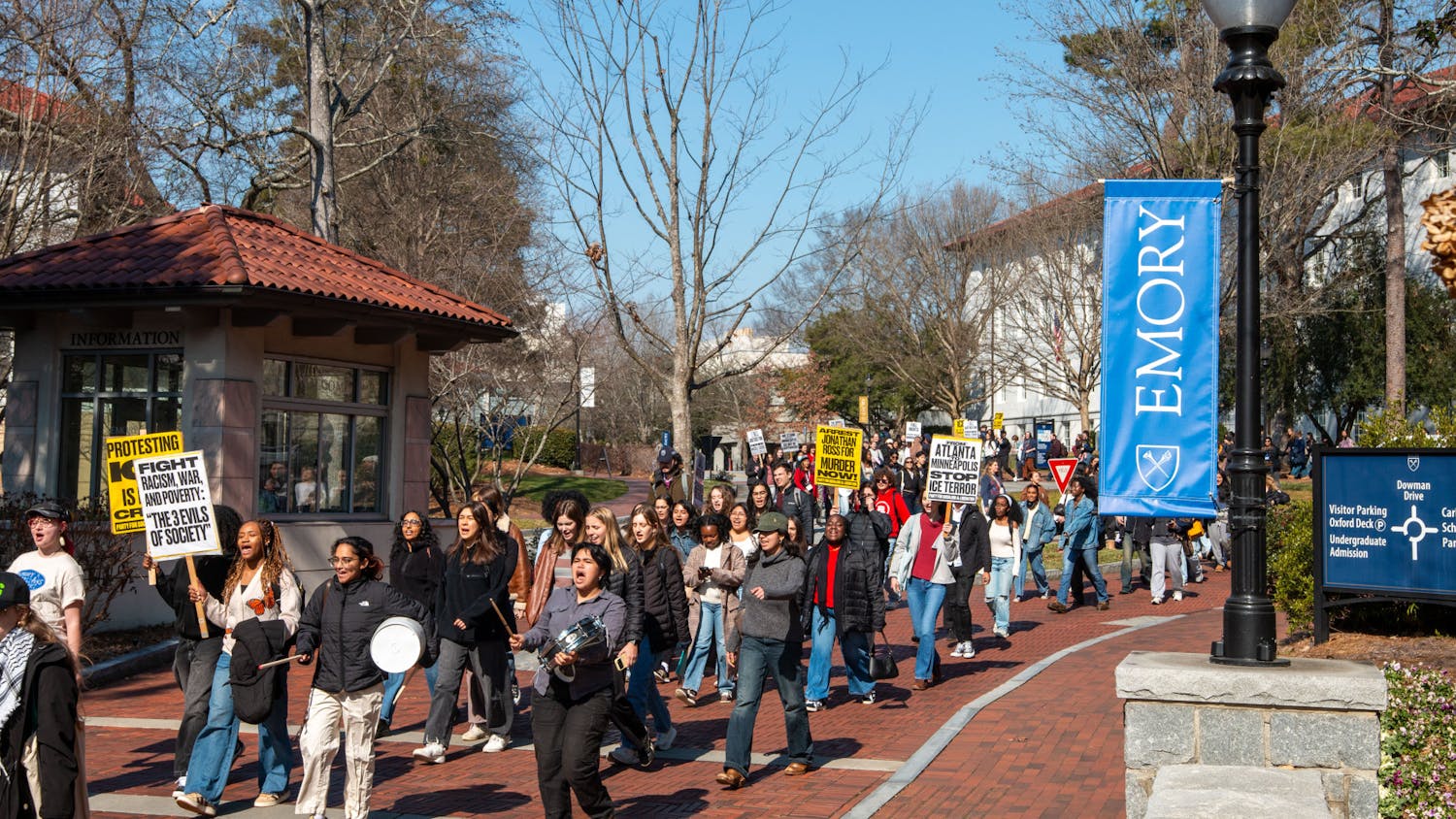College Council (CC) began restricting access to legislative meetings and redacting bills after the Wheel started regularly reporting on its weekly meetings this semester.
‘Executive Session’
To bar public observation of an Oct. 10 legislative meeting, CC voted to enter “executive session.” CC leadership says these impromptu sessions are closed-door meetings in which the legislature’s actions and debate are not disclosed to the public. During the Oct. 10 executive session, legislators debated and voted on club funding requests and discussed “internal issues,” according to CC Vice President Hemal Prasad (19C). CC co-Chief of Staff Jacob Hicks (18Ox, 20C) said CC can enter executive session because it adopted Robert’s Rules of Order as parliamentary procedure in Spring 1971. However, when the Wheel requested CC’s governing documents, Hicks emailed a “Rules of Procedure” passed in March 2014 that makes no mention of Robert’s Rules of Order or executive sessions. Instead, on the first page, it says that “any student ... shall be admitted to the legislature galley.”Hicks told the Wheel that the legislature may invite guests to executive sessions, but the Wheel was not invited to stay during the Oct. 10 executive session.CC President Radhika Kadakia (20C) said CC would continue to enter executive session for funding bills and possibly other deliberations.“Any other sensitive information, if it were to be sensitive, yes,” Kadakia said.Hicks said CC has no plans to enter executive session for non-funding deliberations, and CC co-Chief of Staff Julian Pradeep (19C) said CC would avoid executive session whenever possible to be transparent.Prasad told the Wheel that CC’s Oct. 10 executive session also included discussion about “internal College Council issues.”“This was a matter that CC alone could resolve, so we had to deal with it internally in order to move forward,” Prasad said.Redaction of Documents
The Wheel began regularly attending legislative meetings on Sept. 26. At that meeting, CC deliberated and voted on a funding bill but did not enter executive session. After the meeting, the Wheel asked Vice President of Communications Alexander Chanen (21C) for a copy of the approved bill, but the next day, Chanen said the information is “protected” and emailed an electronic document with all information redacted.College Council Budget Bill 9-21-18 by The Emory Wheel on Scribd
Hicks told the Wheel that CC is redacting funding information to “protect clubs.”“Outside vendors can’t know how much we’re spending,” Hicks said, noting that vendors could manipulate prices negotiated with CC clubs. Hicks explained that if vendors know how much money a club receives, the club could lose bargaining power. He added that vendors may not be willing to enter contracts with Emory clubs if contract values are published.Kadakia and Prasad expressed similar sentiments to the Wheel.“At the end of the day, the risk of that getting out into the public is too high,” Prasad said.Chanen acknowledged that the information was presented during a public meeting.“We are working to address this for future meetings and how to better keep protected information of our constituents and their respective organizations private,” Chanen wrote to the Wheel.To vote on funding requests from multiple clubs, legislators typically combine the requests into one bill. After meeting with the Wheel on Oct. 17, CC leadership agreed to provide aggregate funding information for each bill, including how much was requested, how much was approved and a list of all included clubs. However, the lack of itemized allocations prevents constituents from independently determining whether CC is equitably dispersing funds.SGS Influence
Kadakia and Prasad said CC began restricting access to financial information after Student Governance Services (SGS) Associate Director VonYetta Hunter told them to do so. SGS is composed of University employees who are hired to work “closely with student groups to process payments, transfer funds, and support and manage student financial accounts,” according to its website.“We decided to follow SGS’ advice because in our minds they are the foremost individuals with the most experience,” Prasad said. “We defer to their judgment with regards to the privacy of these monetary values.” In an interview with the Wheel, Hunter said she didn’t recall a specific conversation with CC leadership regarding public access to dollar amounts.The Student Government Association (SGA) Constitution states that all papers of the SGA are public. CC is a divisional council that serves under SGA’s jurisdiction.CC, SGA and SGS have contended for more than a year that the SGA Constitution’s public records clause excludes some information not delineated in the constitution.“Access to emails, meeting minutes and financial documents can be excluded,” Campus Life Senior Director of Communications Tomika Depriest wrote in an Oct. 13, 2017, email to the Wheel.Prasad said that funding request information is not public, as the records are maintained by SGS. Prasad later clarified that both CC and SGS maintain funding request information but did not clarify why the documents would be exempt from the public records clause.“This joint jurisdiction over organizations’ budgets puts things in a murky water,” Prasad said. “I think that’s where we’re getting stuck between a rock and a hard place.”Pradeep said individual clubs may choose to release information to the Wheel or others if they choose.Community Reactions
SGA President Dwight Ma (17Ox, 19C) acknowledged that negotiating and entering contracts could be a concern for CC. Ma explained that SGA allows full access to deliberations and bills because most clubs that request funding from SGA already have their contracts secured with vendors.“I think we will leave the decision up to the divisional council,” Ma said.Ma said SGA has no plans to restrict access to club funding requests presented before SGA. He suggested that students who “feel uncomfortable” with the level of transparency in CC may petition the Constitutional Council.Kadakia’s Spring 2018 presidential campaign platform called for “swinging our doors open for community” and striving to make CC general body meetings “more accessible.” Prasad also said prior to the election that CC should be “transparent.”Some College students told the Wheel they support greater transparency in student government.Lauren Mahoney (22C) said students deserve to know club funding amounts and that CC should provide evidence to support their concerns.“I don’t think vendors are probably paying that much attention to how much one Emory club has,” Mahoney said. “Students at Emory knowing where their money is going is probably a lot more important … If it’s out of the blue and they’re using that as an excuse to restrict transparency then that’s not the way a legislative board should be run.”Jonathan Lung (20C) acknowledged CC’s concerns but also stressed the importance of transparency.“I encourage them to find another way to be more transparent while in the interest of protecting the integrity of the budgets of the clubs,” Lung said. “I want them to be honest.”







